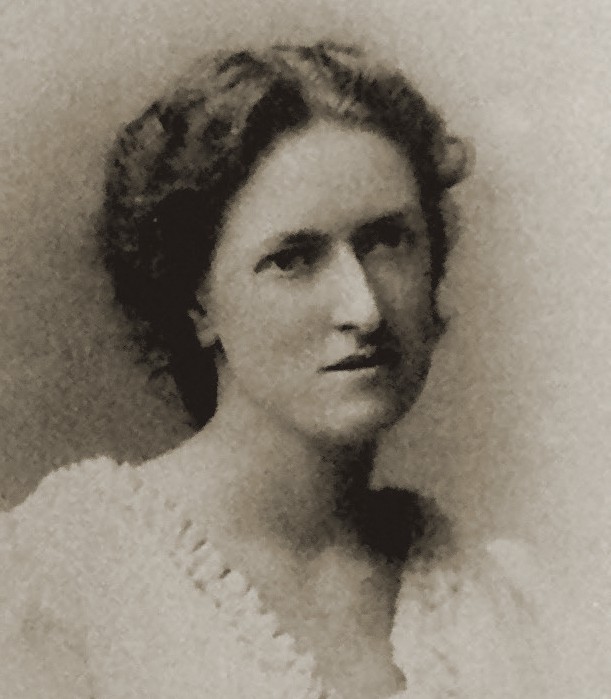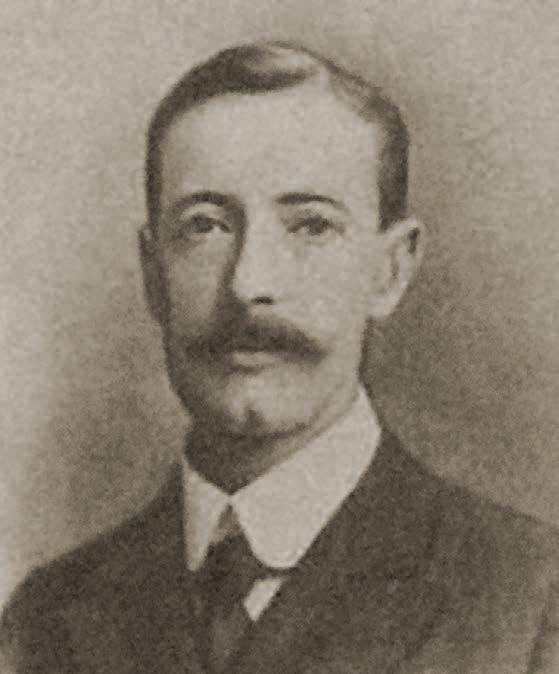Wardrop Marjory Scott and John Oliver
Wardrop Marjory Scott and John Oliver (1869-1909 • 1864-1948), Representatives of English aristocracy - sister and brother Marjory and Oliver Wardrops in their way have become symbols of Georgian- British relations. They made a great contribution to the promotion of Georgian history, culture and literature in Europe.

Marjory - translator, highly educat- ed scholar, fluent in several languages. Her interest in Georgia was kindled by her brother Oliver. She learned Geor- gian language without assistance, with the help of Teach-Yourself Georgian Text- book by M. Brosset and Georgian trans- lation of The New Testament.
For the first time Marjory arrived in Georgia in 1894 along with her mother. After Tbilisi she toured Imereti and Guria. In 1896 she visited Georgia for the second time. During her stay in Geor- gia she familiarized herself with the life of Georgians and got acquainted with prominent public figures; she estab- lished close friendship with Ilia Chavcha- vadze and his wife Olga Guramishvili. In the wake of her trips she wrote The Notes On Travels Across Georgia, where she expressed her impressions of Tbilisi and its places of interest.
M. Wardrop translated significant specimens of Georgian literature into English: Georgian Folk Tales (London, 1894), The Hermit by Ilia Chavchavadze (London, 1895), The Life of St. Nino [to- gether with J. O. Wardrop] (Oxford, 1900) and others. Marjory Wardrop’s
prose translation of The Man in the Pan- ther’s Skin by Shota Rustaveli, published by John Oliver Wardrop after Marjory Wardrop’s death (London, in 1912) was instrumental in arousing the interest of foreign writers and scholars in Georgian literature and history.
After the death of his sister, J. O. Wardrop created the Marjory Wardrop Fund for Georgian Manuscripts and Printed Books at the Bodleian Library of Oxford University, while her mother donated money to the Oxford University to establish the Georgian Department at the University.
Marjory Wardrop died in Bucharest, Romania. She was buried in the Seven Oaks ancestral crypt near London, England.

John Oliver – British statesman, diplomat, translator, promoter of Georgian culture. He was educated at the Oxford University. He served in different countries as a diplomat. In 1892 Sir Oliver Wardrop was appointed the First Secretary of the Embassy of Great Britain in Petersburg; in 1919 – 21 he served as the first British Chief Commissioner in Georgia.
In 1887 he arrived in Georgia for the first time and took a trip almost to all corners of the country. He was hosted by Ilia Chavchavadze and Ivane Machabeli. Sir Oliver took interest in Georgian literature and mastered the Georgian language. Upon returning to England, he wrote the book The Kingdom of Georgia (London, 1888, 1977). He translated The Book of Wisdom and Lies by Sulkhan- Saba Orbeliani (London, 1894). Together with his sister Marjory he translated The Life of St. Nino (Oxford, 1900). He also rendered Visramiani into English (London, 1914) and published English- Svanetian Dictionary (Oxford, 1911).
Sir Oliver continued to add Georgian books and manuscripts to the Marjory Wardrop Collection at the Bodleian Library of Oxford University, which was created by him after his sister’s death. O. Wardrop used to seek for Georgian books and manuscripts; he was looking for foreign texts about Georgia world over, including Georgia. Some of the manuscripts purchased by Sir Oliver were unknown even to the Geor- gian scholars; for instance, law book compiled in 1800 by Davit Batonishvili (Prince Davit), which was attached to the manuscript of the Book of Law by King Vakhtang VI. In 1919 Sir Oliver visited the Bodbe Monastery. Nino Vachnadze, mother superior of the Monastery, pre- sented him with the icon of St. Nino. Till now the Wardrop family regards the icon as a keepsake.


